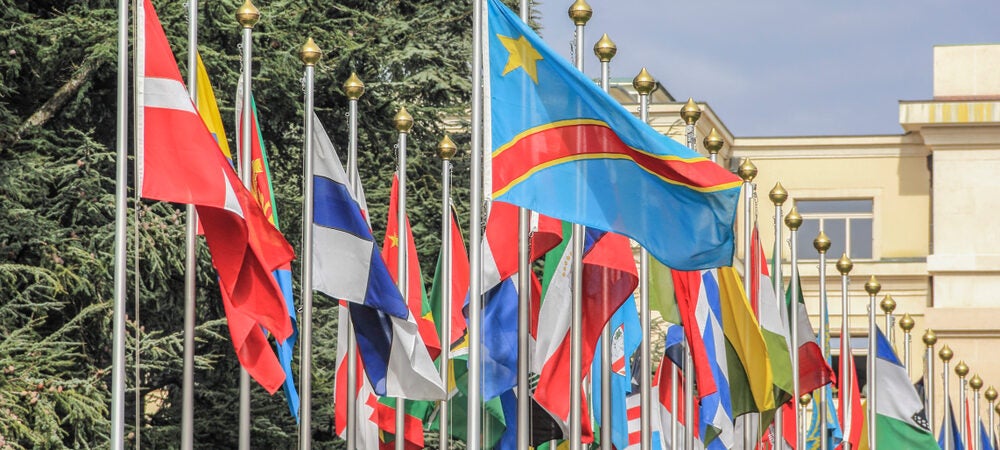Remarks delivered at the Mt. Pelerin Society, Oslo, Norway
The most important legacy from the 20th century for international relations, next to the Allies winning the Second World War, was the creation of the liberal international economic order. The postwar economic structure that the Allies put into place underwrote the ensuing peace. It provided a foundation and made room for the creation of the European Economic Community and the European Union, which has now become the largest trading Member of the World Trade Organization. The Allies set in motion the process of integration of most of the world’s nations into the global economy. It has been an engine for prosperity, lifting hundreds of millions out of poverty, particularly in Asia.
A central pillar of the order has been and remains the multilateral trading system. The system is nearing its Diamond Jubilee next year at age 75. There is, for the first time, a question of whether the nations of the world will squander their inheritance, whether the WTO can fulfill its promise, and whether the liberal international order will survive intact. It is true that there was recently a reprieve. The Trade Ministers of 164 economies came together in June and agreed to a series of decisions, most notably to begin to save the world’s fish stocks from unbridled subsidized fishing. But their items of agreement were largely a way station, marking works in progress. The outcomes consist largely of a number of promissory notes – matters that the Members said that they would resolve. These notes are going to be coming due very soon. In 1998, when the predecessor agreement to the WTO, the GATT (General Agreement on
Tariffs and Trade) reached its 50th anniversary, world leaders, including Presidents Nelson Mandela and Bill Clinton, Prime Minister Tony Blair, and EU Commission President Jacques Santer, gathered in Geneva to celebrate what had been accomplished in the creation and continuous improvement of the multilateral trading system, they expressed their hopes for the future of the newly established World Trade Organization (WTO). The Prime Minister of Norway, Kjell Magne Bondevik, in his remarks on that occasion, provided a sense of the history that had led to the creation of the WTO. This is what he said:
No one can tell what a different system – or indeed what an absence of multilateral trade rules – might have led to. Looking back, I believe it is fair to say that the provisions and principles of the GATT – and later of the WTO – have made a decisive contribution to the progress large parts of the world have witnessed during the latter part of this century. I am not speaking of economic growth alone, but just as much of the social achievements, employment and political stability which prosperity generates. These are fundamental values. The multilateral trading system of today thus constitutes an important part of a global framework that fosters stability and peaceful relations.
The Prime Minister also noted that there were challenges. He was concerned even then, a quarter of a century ago, about an adverse reaction to globalization, the “fear that our democratic institutions are losing control of the international economic forces and that environmental and social costs will be high”. He also was worried about the ability of the least developed countries to benefit from the trading system. He saw a need for the Members of the WTO to discuss how the qualitative aspects of trade – such as health, consumer protection, food safety, and the environment – could be brought more into focus. He said that labor standards should also be an issue for consideration by the WTO. His words stand before us today as a clear statement of much of the unfinished business of shaping the multilateral trading system. Italian Prime Minister Romano Prodi, speaking at the same event in 1998, said that he
believed that the WTO would need another 20-25 years to complete the rules of the trading system. Meeting here today, we now know for certain that there is no end date to the necessary evolution of the rules. The questions before us are: (1) whether the world’s trading nations will come together to cooperate to sustain the multilateral trading system, and (2) whether they will agree on improvements to the World Trade Organization (WTO) to meet current challenges. To answer these two questions, we need to consider two environments that will shape potential international trade cooperation: one is external to the WTO, the forces that undermine or aid the process of nations working together, and the other is internal, relating to whether change is needed in how the WTO is currently structured and operates, whether it is fit for purpose.
To read the full post, please click here.

